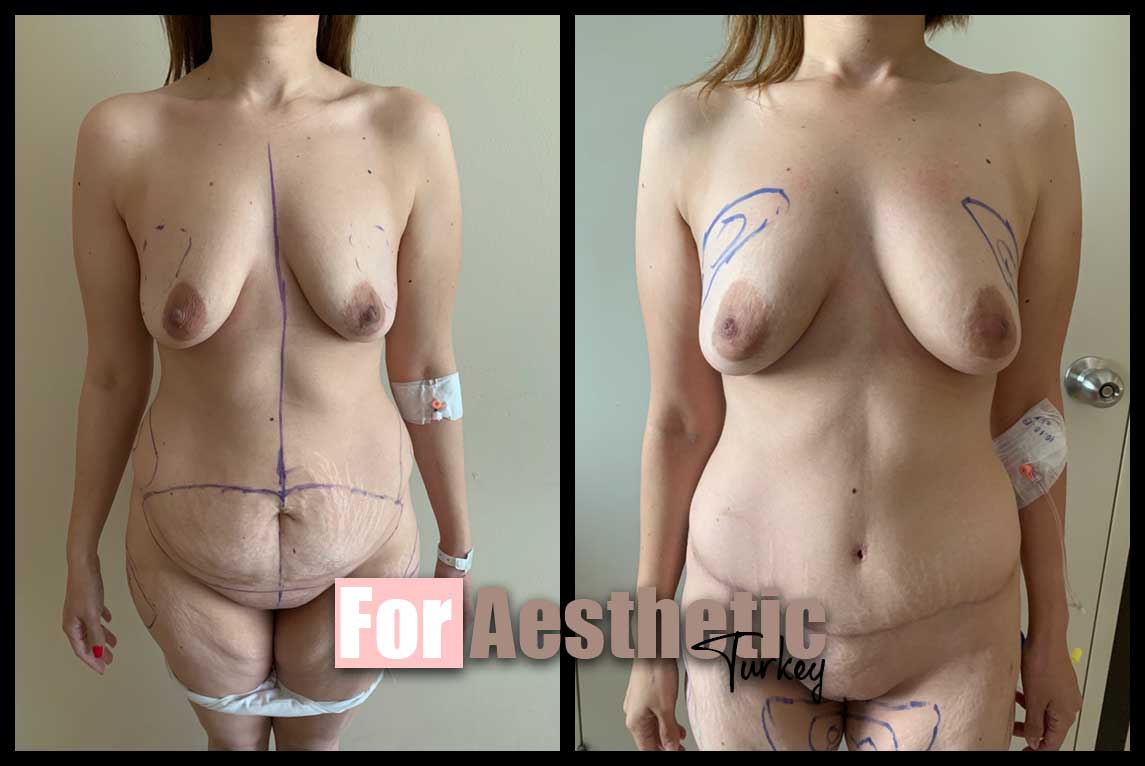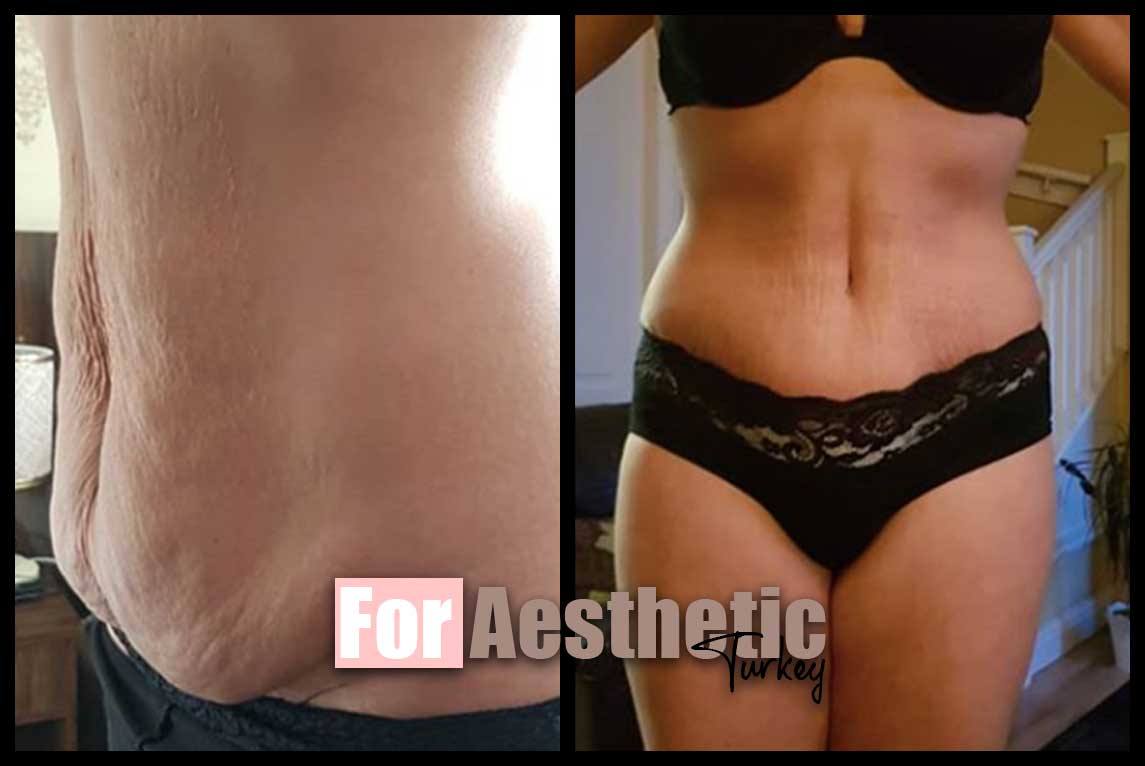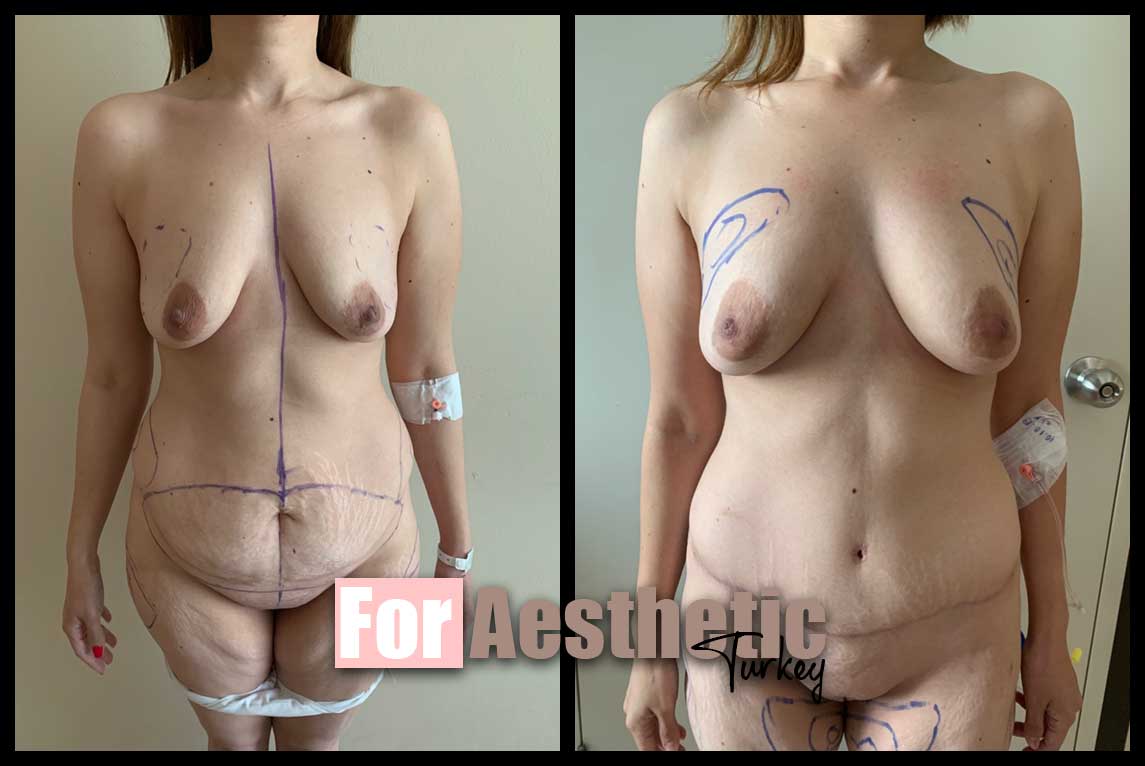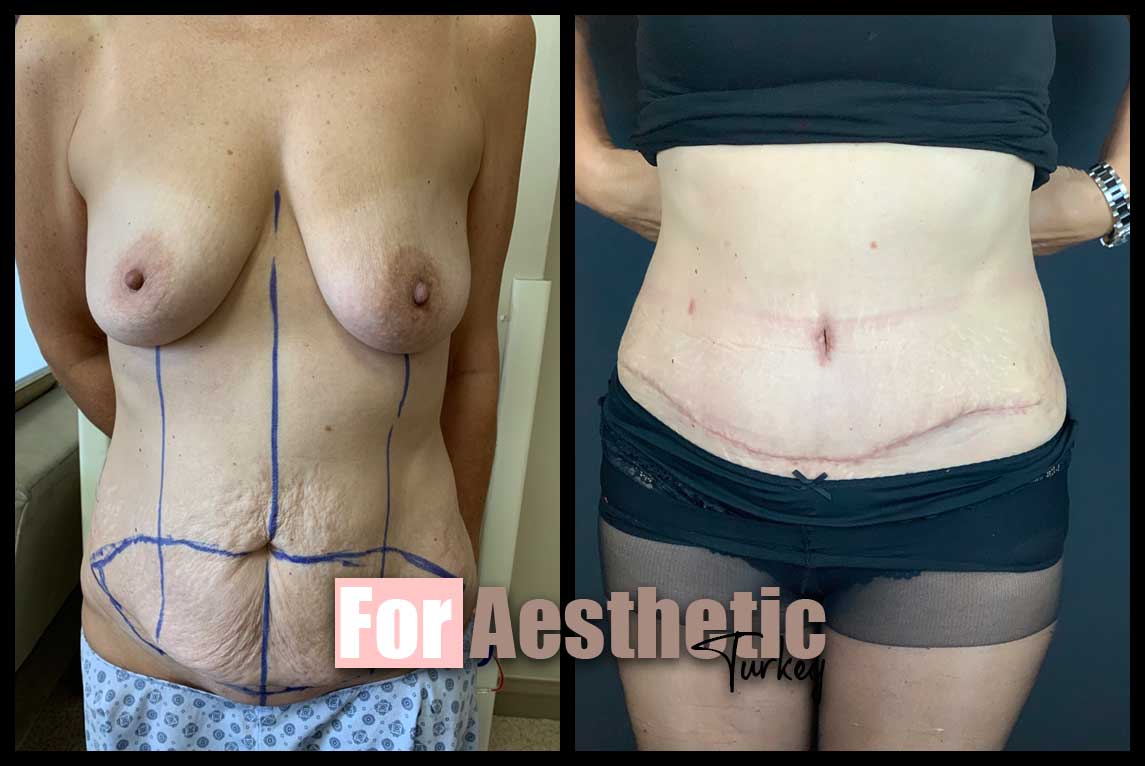Tummy Tuck Surgery in Turkey: Achieve a Flatter, Firmer Abdomen with Expert Care
Excess skin and fat around the abdomen can be stubborn and challenging to eliminate, even with diet and exercise. Whether due to pregnancy, weight loss, or aging, loose skin and weakened abdominal muscles can leave you feeling less confident in your body. Tummy tuck surgery in Turkey, also known as abdominoplasty, offers a solution to these concerns by tightening the abdominal muscles and removing excess skin, giving you a smoother, firmer midsection. With highly experienced surgeons, affordable prices, and luxury post-operative care, Turkey is a top destination for patients seeking transformative cosmetic surgery.
What is Tummy Tuck Surgery?
A tummy tuck is a surgical procedure that removes excess skin and fat from the abdominal area and tightens the underlying muscles to create a flatter, more toned appearance. It is particularly effective for those who have loose or sagging skin following pregnancy or significant weight loss, as well as individuals who want to improve the contour of their abdomen.
Why Consider a Tummy Tuck?
Patients opt for tummy tuck surgery for a variety of reasons, including:
- Post-Pregnancy Changes: Pregnancy can stretch the abdominal muscles and skin, leaving behind a bulging or sagging midsection. A tummy tuck can restore the pre-pregnancy appearance.
- Weight Loss: After significant weight loss, excess skin can remain in the abdominal area, preventing the full benefits of weight loss from showing. A tummy tuck removes this loose skin.
- Aging: Over time, the skin loses elasticity, and abdominal muscles can weaken, leading to a protruding belly. A tummy tuck tightens and firms this area, reversing the effects of aging.
- Boost in Confidence: A smoother, firmer abdomen can significantly improve self-confidence and body image.
Benefits of a Tummy Tuck
- Flatter Abdomen: A tummy tuck removes excess skin and fat, resulting in a smoother, firmer midsection.
- Tighter Abdominal Muscles: By repairing and tightening weakened or separated abdominal muscles, the procedure provides long-lasting improvements to core strength and posture.
- Improved Body Contour: The surgery creates a more proportional and balanced body contour, enhancing the overall shape of your waistline.
- Permanent Results: As long as you maintain a stable weight, the results of a tummy tuck are long-lasting and can significantly improve your silhouette.
Why Choose Turkey for Tummy Tuck Surgery?
Turkey has become one of the most popular destinations for tummy tuck surgery and other cosmetic procedures due to its highly skilled surgeons, state-of-the-art clinics, and affordable prices. Here's why Turkey is the ideal place for your tummy tuck:
-
Expert Surgeons: Turkey's cosmetic surgeons are renowned for their expertise and experience in performing tummy tuck procedures, ensuring safe and successful results.
-
Cutting-Edge Clinics: Our clinics are equipped with advanced technology and follow international safety standards to provide a comfortable and safe environment for your surgery.
-
Affordable Prices: The cost of a tummy tuck in Turkey is significantly lower than in Western countries like the UK, USA, or Europe, without compromising the quality of care.
-
Luxury Accommodation: At ForAesthetic, we provide comprehensive packages that include your surgery, aftercare, and accommodation in a luxury hotel in Antalya, allowing you to recover in comfort while enjoying the beauty of this scenic city.
The Tummy Tuck Procedure: What to Expect
Here's what you can expect during your tummy tuck surgery:
-
Consultation: During your consultation, your surgeon will assess your abdominal area, discuss your goals, and develop a personalized surgical plan.
-
Anesthesia: The procedure is typically performed under general anesthesia to ensure your comfort throughout the surgery.
-
Incisions: A horizontal incision is made just above the pubic area. The length of the incision depends on how much skin needs to be removed. In cases where there is significant excess skin, an additional incision around the navel may be required to reposition it.
-
Tightening and Removal: The surgeon will repair and tighten the abdominal muscles and remove excess skin and fat. The remaining skin is then pulled tight, and the incisions are closed.
-
Recovery: After the surgery, you'll wear a compression garment to help minimize swelling and support your healing abdomen. Most patients can return to light activities after about two weeks, with full recovery taking several months.
How Much Does a Tummy Tuck Cost in Turkey?
One of the biggest advantages of having tummy tuck surgery in Turkey is the cost. While prices in the UK or USA can be quite high, the cost in Turkey is much more affordable, making it a popular choice for patients worldwide.
For a personalized quote, feel free to contact us via WhatsApp at +90 532 551 7976 or email us at [email protected].
Who is a Good Candidate for a Tummy Tuck?
You may be a good candidate for tummy tuck surgery if:
- You have loose or sagging skin around the abdomen due to weight loss, pregnancy, or aging.
- You are in good overall health and at a stable weight.
- You do not smoke or are willing to quit smoking before and after the surgery to ensure proper healing.
- You have realistic expectations about the outcome of the surgery.
Before and After: Tummy Tuck Transformations
At ForAesthetic, we specialize in delivering natural, beautiful results through tummy tuck surgery. Our experienced surgeons use advanced techniques to ensure a smooth recovery and optimal results.
To view our before and after gallery of tummy tuck transformations, visit our website at foraesthetic.co.uk.
Book Your Tummy Tuck Surgery in Turkey
At ForAesthetic, we are committed to providing personalized care and achieving the best possible results for our patients. From your consultation to post-surgery recovery, we ensure a smooth and luxurious experience for your tummy tuck surgery in Turkey.
For inquiries or to schedule your consultation, contact us at:
- Phone: +90 532 551 7976
- Email: [email protected]
Achieve a flatter, firmer abdomen with expert tummy tuck surgery at ForAesthetic. Let our experienced team help you regain your confidence and improve your body contour.

Why it's done
There are a number of reasons you might have excess fat, poor elasticity of the skin or weakened connective tissue in your abdomen. These include:
- Significant changes in weight
- Pregnancy
- Abdominal surgery, such as a C-section
- Aging
- Your natural body type
A tummy tuck can remove loose, excess skin and fat, and tighten weak fascia. A tummy tuck can also remove stretch marks and excess skin in the lower abdomen below the bellybutton. However, a tummy tuck won't correct stretch marks outside of this area.
If you've previously had a C-section, your plastic surgeon might be able to incorporate your existing C-section scar into your tummy tuck scar.
A tummy tuck can also be done in combination with other body contouring cosmetic procedures, such as breast surgery. If you've had fat removed from your abdomen (liposuction), you may decide to have a tummy tuck because liposuction removes tissue just under the skin and fat but not any excess skin.
A tummy tuck isn't for everyone. Your doctor might caution against a tummy tuck if you:
- Plan to lose a significant amount of weight
- Might consider future pregnancy
- Have a severe chronic condition, such as heart disease or diabetes
- Have a body mass index that's greater than 30
- Are a smoker
- Had a previous abdominal surgery that caused significant scar tissue

Risks
A tummy tuck poses various risks, including:
- Fluid accumulation beneath the skin (seroma). Drainage tubes left in place after surgery can help reduce the risk of excess fluid. Your doctor might also remove fluid after surgery using a needle and syringe.
- Poor wound healing. Sometimes areas along the incision line heal poorly or begin to separate. You might be given antibiotics during and after surgery to prevent an infection.
- Unexpected scarring. The incision scar from a tummy tuck is permanent, but is placed along the easily hidden bikini line. The length and visibility of the scar varies from person to person.
- Tissue damage or death. During a tummy tuck, fatty tissue deep within your skin in the abdominal area might get damaged or die. Smoking increases this risk. Depending on the size of the area, tissue might heal on its own or require a surgical touch-up procedure.
- Changes in skin sensation. During a tummy tuck, the repositioning of your abdominal tissues can affect the nerves in the abdominal area, and infrequently, in the upper thighs. You'll likely feel some reduced sensation or numbness. This usually diminishes in the months after the procedure.
Like any other type of major surgery, a tummy tuck poses a risk of bleeding, infection and an adverse reaction to anesthesia.

How you prepare
Initially, you'll talk to a plastic surgeon about a tummy tuck. During your first visit, your plastic surgeon will likely:
-
Review your medical history. Be prepared to answer questions about current and past medical conditions. Talk about any medications you're taking or you have taken recently, as well as any surgeries you've had.
Tell your doctor if you are allergic to any medications. If your desire for a tummy tuck is related to weight loss, your doctor will likely ask detailed questions about your weight gain and loss.
- Do a physical exam. To determine your treatment options, the doctor will examine your abdomen. The doctor might also take pictures of your abdomen for your medical record.
- Discuss your expectations. Explain why you want a tummy tuck, and what you're hoping for in terms of appearance after the procedure. Make sure you understand the benefits and risks, including scarring. Keep in mind that previous abdominal surgery might limit your results.
Before a tummy tuck you might also need to:
- Stop smoking. Smoking decreases blood flow in the skin and can slow the healing process. In addition, smoking increases the risk of tissue damage. If you smoke, your doctor will recommend that you stop smoking before surgery and during recovery.
- Avoid certain medications. You'll likely need to avoid taking aspirin, anti-inflammatory drugs and herbal supplements, which can increase bleeding.
- Maintain a stable weight. Ideally, you'll maintain a stable weight for at least 12 months before having a tummy tuck. If you're severely overweight, your doctor will recommend that you lose weight before the procedure. Significant weight loss after the procedure can diminish your results.
- Take medication to prevent complications. Shortly before your tummy tuck, you'll need to begin taking an anticoagulant to prevent blood clotting.
- Arrange for help during recovery. Make plans for someone to drive you home after you leave the hospital and stay with you for at least the first night of your recovery at home.
What you can expect
A tummy tuck is done in a hospital or an outpatient surgical facility. During a tummy tuck, you'll be under general anesthesia — which makes you completely unconscious and unable to feel pain. In some cases, you might be given a pain-relieving medication and be moderately sedated (partially asleep).
Before the procedure
There are a number of different procedures for a tummy tuck, depending on the extent of change you would like to see. During the typical tummy tuck, your plastic surgeon makes incisions to remove most of the skin and fat between your bellybutton and pubic hair in a horizontal oval or elliptical shape. Connective tissue (fascia) that lies over the abdominal muscles is then tightened with permanent sutures.
Your plastic surgeon will then reposition the skin around your bellybutton. Your bellybutton will be brought out through a small incision and sutured in its normal position. The incision from hip to hip above the pubic hair will be stitched together and will leave a scar that falls along the natural crease within the bikini line.
During the procedure you might be given an antibiotic to prevent infection.
The procedure typically takes about two to three hours.
After the procedure
After a tummy tuck, your abdominal incision and bellybutton will likely be covered with surgical dressing. Small tubes might be placed along the incision site to drain any excess blood or fluid.
Members of your health care team will help you walk as early as the first day after a tummy tuck to help prevent the formation of blood clots.
You'll likely feel moderate pain, which will be controlled by pain medication. It's normal to have swelling in the surgical area.
Drains might be left in place for several days after surgery. Your doctor or another member of your health care team will show you how to empty and care for your drains. You might need to continue taking an antibiotic as long as the drains are in place.
Your surgeon might also prescribe a blood-thinning medication for a short time after your tummy tuck.
You'll wear a supportive abdominal garment (abdominal binder) for about six weeks after your tummy tuck. This helps prevent fluid buildup and provides abdominal support while you heal. Your doctor will explain how to care for your scar.
For the first six weeks after a tummy tuck, you'll need to be careful when moving around. You'll also need to avoid positions that strain your incision line — such as quickly bending at the waist — to prevent the reopening of the wound.
You'll need to schedule regular follow-up visits. Ask your doctor how often you need to be seen.
Results
By removing excess skin and fat and strengthening your abdominal wall, a tummy tuck can give your abdomen a more toned and slimmer appearance.
Tummy tuck results are usually long lasting if you maintain a stable weight.

